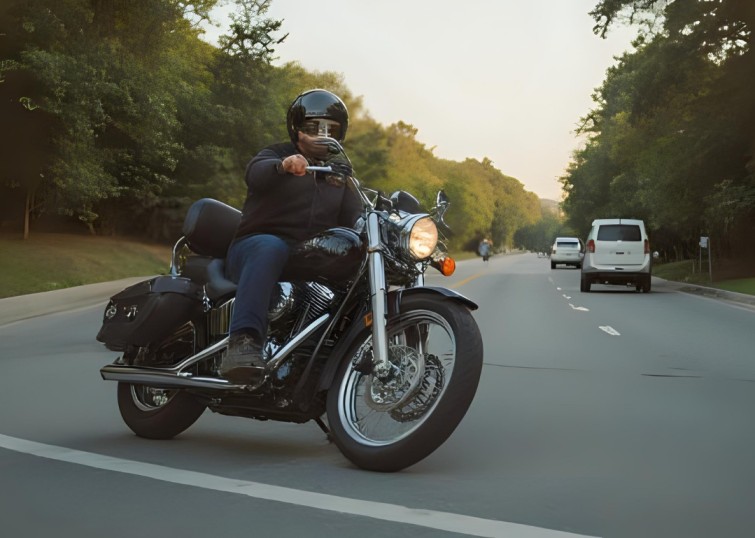
TL;DR: Navigating rideshare accident claims can be complicated due to insurance issues and liability confusion. Understanding how to proceed—gathering evidence, filing claims, and working with an attorney—can maximize compensation and simplify the process.
Key Highlights:
- Liability Complexity: Understand who’s responsible, including the rideshare company and the driver’s insurance.
- Insurance Coverage: Different policies apply depending on the driver’s status (on/off duty).
- Steps to Take: Seek medical help, document the accident, report to rideshare companies, and consult a lawyer.
- Georgia Laws: Be aware of Georgia-specific insurance and liability laws related to rideshare accidents.
Rideshare services like Uber and Lyft have revolutionized transportation, but accidents involving these companies can create complex legal and insurance issues. Whether you were a passenger, a pedestrian, or another driver involved in a rideshare accident, it is crucial to understand how to navigate the claims process to receive the compensation you deserve. Rideshare accidents differ from traditional car accidents in terms of liability, insurance coverage, and the parties involved. Knowing the right steps can significantly impact the outcome of your claim.
In Georgia, the legal landscape surrounding rideshare accidents requires a clear understanding of both state law and the unique insurance policies provided by rideshare companies. This guide will walk you through the essential steps to take after an accident, the role of insurance coverage, and how to maximize your compensation. Whether you’re dealing with rideshare drivers, their personal insurance, or the rideshare company’s own policies, it’s essential to know where to turn for help.
Understanding Rideshare Accidents
What Are Rideshare Accidents?
Rideshare accidents refer to any type of accident or collision involving a vehicle operated by a rideshare driver, such as those working for Uber or Lyft. These accidents can occur while the driver is transporting a passenger, waiting for a ride request, or even when the driver is not actively working for the rideshare company. The complexity of rideshare accidents often stems from the involvement of multiple parties, including the rideshare driver, the rideshare company, and other drivers or pedestrians. Understanding the nuances of these accidents is crucial for effectively navigating the claims process and securing the compensation you deserve.
Common Injuries Suffered in Rideshare Accidents
Rideshare accidents can result in a range of injuries, from minor to severe. Some common injuries suffered in rideshare accidents include:
- Whiplash
- Fractures
- Concussions
- Lacerations
- Internal injuries
- Traumatic brain injuries or spinal cord injuries
It’s essential to seek medical attention immediately after a rideshare accident, even if you don’t feel injured right away. The adrenaline from the accident can mask pain, making injuries less noticeable at first. Prompt medical evaluation not only ensures your health and safety but also provides crucial documentation for your personal injury claim.
Understanding Liability in Rideshare Accidents
One of the first challenges in a rideshare accident is determining liability. Unlike traditional accidents, where fault may lie with one party, rideshare accidents can involve multiple parties—ranging from the rideshare driver to the rideshare company, and even other motorists.
Georgia Law on Liability: Under Georgia law, drivers are required to carry a minimum of $25,000 in liability coverage per person and $50,000 per accident for bodily injury. However, when a rideshare driver is involved, the situation becomes more complicated. If the driver was on duty and accepted a ride, the rideshare company’s insurance may also come into play, which can provide additional coverage. In cases where the rideshare driver was not on duty (not using the app), only their personal insurance would apply. It’s important to know whether the driver was operating under their personal insurance or the rideshare company’s insurance at the time of the accident.
Understanding these distinctions is vital for identifying the responsible parties and pursuing a successful personal injury claim. If negotiations with insurance companies fail, filing a personal injury lawsuit may become necessary to pursue fair compensation.
Who is Held Liable for a Rideshare Accident?
Determining liability in a rideshare accident can be complex and often requires a detailed investigation. The at-fault driver is typically responsible for the damages caused. However, rideshare companies like Uber and Lyft carry liability insurance for situations where the driver is actively working. The situation can change depending on whether the driver was logged into the app or using the vehicle for personal purposes. Understanding these distinctions is vital for identifying the responsible parties and pursuing a successful personal injury claim.
Steps to Take After a Rideshare Accident
Assess the Accident Scene and Ensure Safety
After a rideshare accident, your first priority should be to assess the accident scene and ensure the safety of everyone involved. This includes the rideshare driver, passengers, and other vehicle occupants or pedestrians. If there are any injuries or dangerous conditions, call emergency services immediately to request medical attention and law enforcement. Activating your vehicle’s hazard lights can help alert other drivers and prevent additional accidents, especially in busy traffic areas.
Once safety is secured, gather crucial information. First, note the rideshare app involved (such as Uber or Lyft) and any ride request details. Then, exchange contact details with the rideshare driver, other involved drivers, and any witnesses. Be sure to collect insurance details from the rideshare driver, including personal insurance and the rideshare company’s insurance coverage. It’s also important to document the accident scene thoroughly with photos of the vehicles, property damage, and any visible injuries sustained.
This step is critical for both the insurance claims process and any potential legal proceedings. A personal injury lawyer can help guide you through the process and ensure that you receive fair compensation for your medical bills, lost wages, and other damages.
Insurance Coverage in Rideshare Accidents
Rideshare companies like Uber and Lyft offer specific insurance coverage for drivers while they are working. The rideshare company’s insurance is particularly significant during a trip with paying passengers, as it prioritizes passenger safety and applies to personal injury claims. However, the coverage varies depending on the driver’s status at the time of the accident.
- While the App is Off (Driver Not Logged In): If the rideshare driver was not logged into the app at the time of the accident, their personal car insurance will cover the damages. In Georgia, personal car insurance typically covers liability for the driver. This highlights the distinction between personal insurance and the rideshare company’s liability insurance.
- While the App is On, But No Passenger: If the driver is logged into the app but hasn’t accepted a ride yet, the rideshare company provides liability coverage that typically includes $50,000 per person in bodily injury, up to $100,000 per accident.
- While Driving a Passenger: Once a driver has accepted a passenger ride and is actively transporting someone, the rideshare company’s full coverage kicks in. This coverage often includes up to $1 million in liability for bodily injury and property damage, as well as uninsured motorist coverage.
Georgia Code on Insurance in Rideshare Accidents
According to Georgia Code § 40-6-49, drivers involved in rideshare accidents must carry the required insurance levels to operate legally. For rideshare companies, the legal requirements for coverage are more stringent. Personal injury attorneys are crucial in navigating Georgia’s insurance laws and maximizing compensation for victims. Under the Insurance Company Act of Georgia, rideshare companies must ensure that drivers carry at least the state-required minimum coverage when not engaged in a trip and provide additional coverage when transporting passengers.
How to Navigate Personal Injury Claims Involving Rideshare Accidents: A Step-by-Step Guide
- Seek Medical Attention Immediately: Always prioritize your health and safety. Even if you feel fine, some injuries may not appear immediately. Visit a doctor and ensure all your injuries are documented. Seeking medical attention promptly after an accident is crucial for both your health and legal documentation.
- Document the Accident: Collect as much information as possible. Take photos of the accident scene, exchange contact and insurance details with all involved parties, and obtain contact information for any witnesses.
- Report the Accident to Rideshare Companies and Authorities: Notify the rideshare company about the accident through the app. Uber and Lyft have accident report features that trigger the company’s insurance coverage. Additionally, report the accident to local authorities and file an official police report. Be aware of the protocols and legal considerations that arise after being involved in an Uber or Lyft accident.
- File an Insurance Claim: Depending on who was at fault and which coverage applies, file an insurance claim. If the rideshare driver was on duty, the rideshare company’s insurance policy may cover the accident. If the driver wasn’t on duty, their personal insurance will be the primary coverage.
- Consult with a Personal Injury Lawyer: Working with an experienced personal injury attorney who understands Georgia law and rideshare regulations will significantly improve your chances of receiving compensation. An attorney can help you navigate the complex claims process, negotiate with insurance companies, and ensure you are properly compensated for both economic and non-economic damages. Personal injury lawyers are particularly adept at handling the unique legal landscape of rideshare accidents.
- Maximize Your Compensation: Rideshare accidents often involve both economic and non-economic damages. Economic damages include medical expenses and lost wages, while non-economic damages account for pain, suffering, and emotional distress. In some cases, punitive damages may apply if the defendant acted recklessly.
- Prepare for Potential Litigation: If a fair settlement cannot be reached, be prepared for litigation. Your lawyer can help you file a lawsuit and represent you in court to fight for your rightful compensation.
Why You Need an Atlanta Personal Injury Lawyer
Rideshare accident claims can quickly become complicated, especially when dealing with multiple insurance policies and determining liability. Working with an experienced personal injury lawyer who has a deep understanding of Georgia law and rideshare regulations is crucial. Personal injury attorneys can navigate the complexities of rideshare laws and provide essential legal representation to enhance the chances of a favorable lawsuit outcome for victims. An attorney can help you navigate the complex legal and insurance processes, negotiate on your behalf, and ensure that your rights are protected throughout the process.
Contact us for a free consultation at Atlanta Personal Injury Lawyer. Our experienced team will guide you through every step of the claims process, ensuring your best interests are protected.
Conclusion
Navigating a personal injury claim involving a rideshare accident in Georgia can be a complex process, given the multiple parties involved and the unique insurance coverage that applies. Understanding the nuances of liability, insurance policies, and the steps to take after an accident is crucial to securing the compensation you deserve. From determining whether the rideshare driver was on duty to understanding the coverage limits provided by companies like Uber and Lyft, knowing your rights and responsibilities is essential for a successful claim.
If you’ve been injured in a rideshare accident, consulting with an experienced Atlanta personal injury lawyer can provide the expert guidance you need. Our team is dedicated to helping you navigate the intricacies of your case, ensuring that all available insurance coverage is explored, and working tirelessly to maximize your compensation.
Contact us for a free consultation today and let us help you get the compensation you deserve while handling the legal complexities of your rideshare accident claim.



